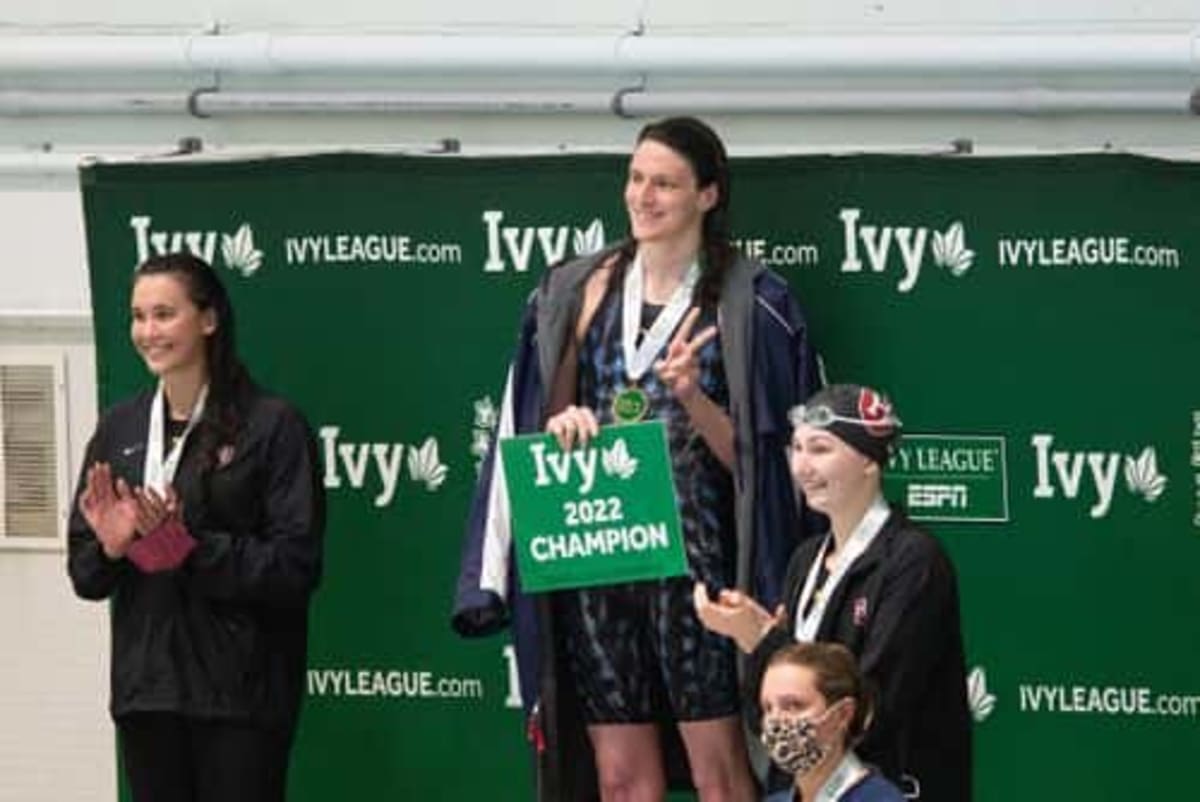What is IOC's transgender framework? Olympic chiefs introduce new rules to keep women's sports 'fair'

A "monumental" set of transgender policies have been developed by Olympic officials to "preserve" equality in competitive women's sports. High-profile examples like that of the US swimmer Lia Thomas and the British cyclist Emily Bridges have sparked ferocious discussion about the issue of allowing trans individuals to take part in women's categories.
Leading female athletes, like former swimmer Sharron Davies and cyclist Nicole Cooke, criticized the International Olympic Committee for accepting new rules 13 months ago that stated there should be "no presumption of advantage" for trans women wishing to compete in the female category.
READ MORE
Michael Phelps slammed for saying Lia Thomas issue is 'complicated': 'Waving white flag'
The framework's emphasis on inclusiveness and diversity was well-received by the transgender community and human rights activists, but the IOC has continued to come under pressure to update it and offer more specific guidance to particular sports that have been rushing to modernize their rules. The new guidelines appear to at least partially address the primary complaints of the earlier ones, which also infuriated women's groups and members of the scientific and medical professions.
The advice to international sports bodies to take into account both the participation of transgender athletes and fairness for women when establishing eligibility standards is arguably the most significant. The declaration, which was published in the British Journal of Sports Medicine, also states that while establishing qualifying requirements, the opinions of both medical and scientific professionals as well as human rights advocates should be taken into account.

IOC-affiliated sports scientists and medical professionals said they were forgotten when the initial statement was drafted. Speaking to Daily Mail, Yannis Pitsiladis, co-author of the statement and a member of the IOC's medical and scientific commission, told, "This position statement update on the IOC framework and the extraordinary efforts that have gone into developing this consensus is, in my opinion, the most important and constructive development in this field since the publication of the IOC consensus statement on the topic in 2015." The IOC released its current framework, which is divided into 10 categories or "principles," in November of last year. It addresses "fairness, inclusiveness, and non-discrimination on the basis of gender identity and sex variants."
The revised, 5,188-word statement addresses each in turn and clarifies it for the benefit of the governing organizations of the various sports. It addresses the argument that trans women who want to participate in the female division shouldn't be given a "presumption of advantage."
'Drafted mainly from human rights perspective'
Daily Mail reports, the new statement reads: "Principle 4 [fairness] recognizes that sports organizations may at times need to issue eligibility criteria for sex-segregated competition to maintain a fair and proportionate distribution of competitive advantages among participants. It also recognizes the particular importance of advancing equality for women in sport and preserving fair and meaningful competition for elite women athletes, which may require criteria that limit eligibility in some cases." In a position paper that was co-published in January, the International Federation of Sports Medicine (FIMS) stated that the statement "was drafted mainly from a human rights perspective." There were 38 signatories to the important FIMS study, many of them were eminent sports scientists and medical professionals.
'Signals a monumental change'
In contrast, the new declaration counsels sports federations to develop gender-inclusion policies using a comprehensive approach.
According to the authors, they had to take into account "the state of scientific and medical knowledge as well as ethical, legal, human rights, and social considerations." Professor Pitsiladis, Lenka Dienstbach-Wech, a trauma surgeon who serves as chair of the World Rowing Federation's athletes commission and is a former world rowing champion, and Fabio Pigozzi, president of FIMS and the Italian Anti-Doping Organization, are three of the nine signatories to the position statement. Pitsiladis added, "Beyond the text, this position statement signals a monumental change in modus operandi to unify science, medicine, legal and human rights. This is the main achievement here. And while we are only at the beginning, we now have the foundation and resolve to do what it takes to best help individual IFs [international federations] to develop their own policy that is evidenced-based, fair and as inclusive as possible."










